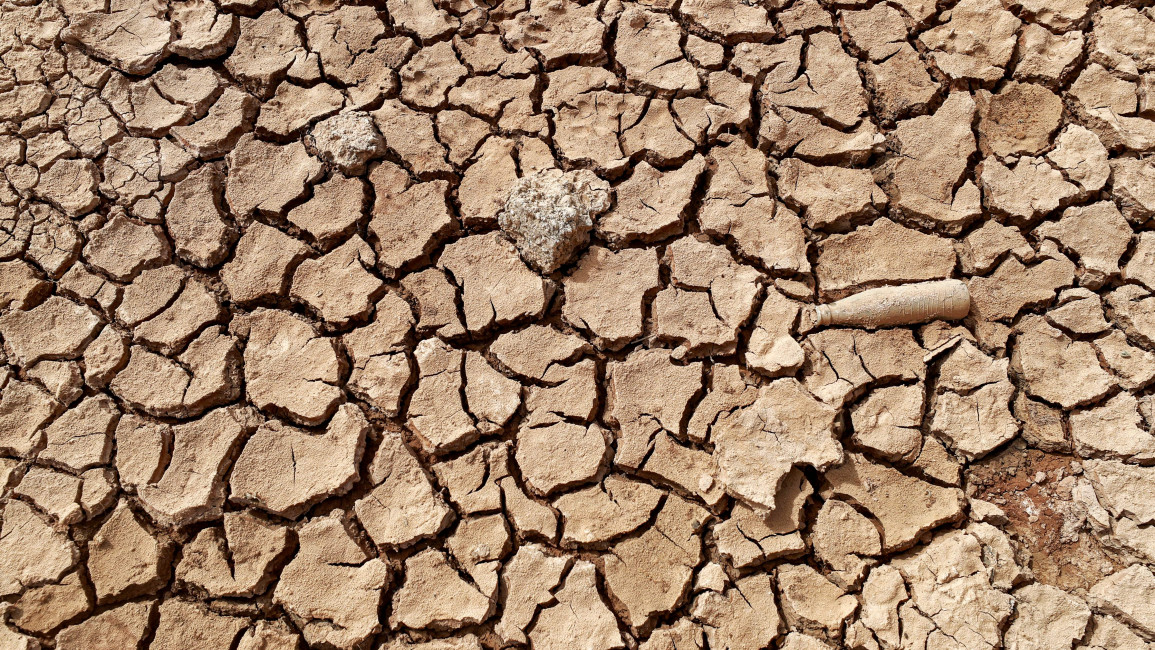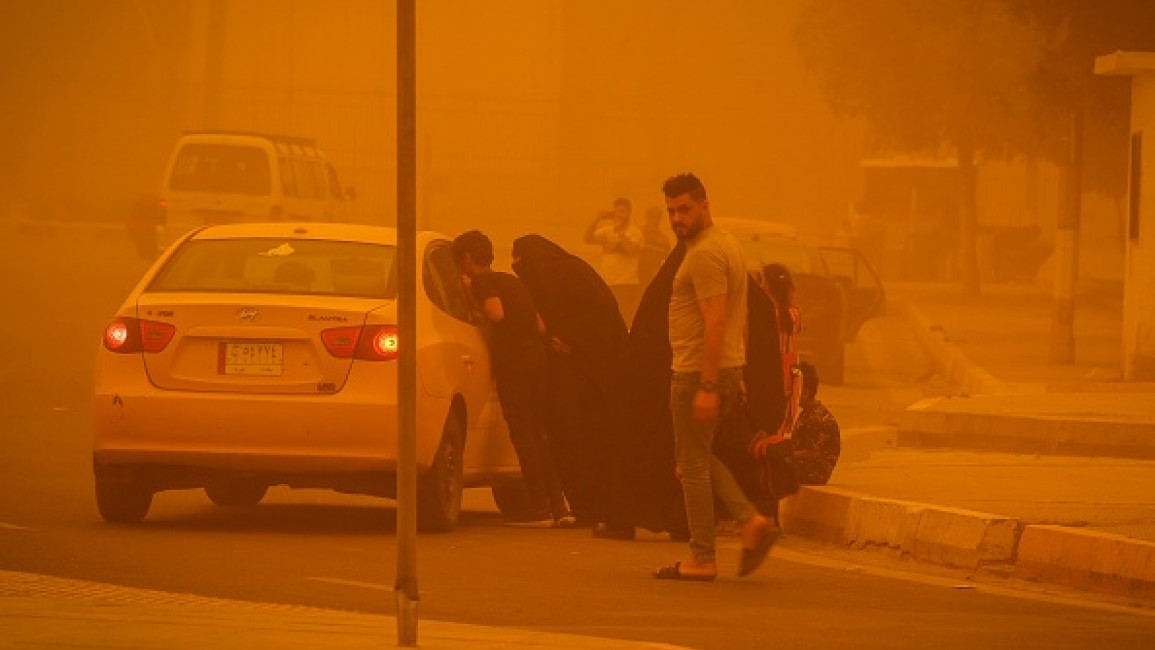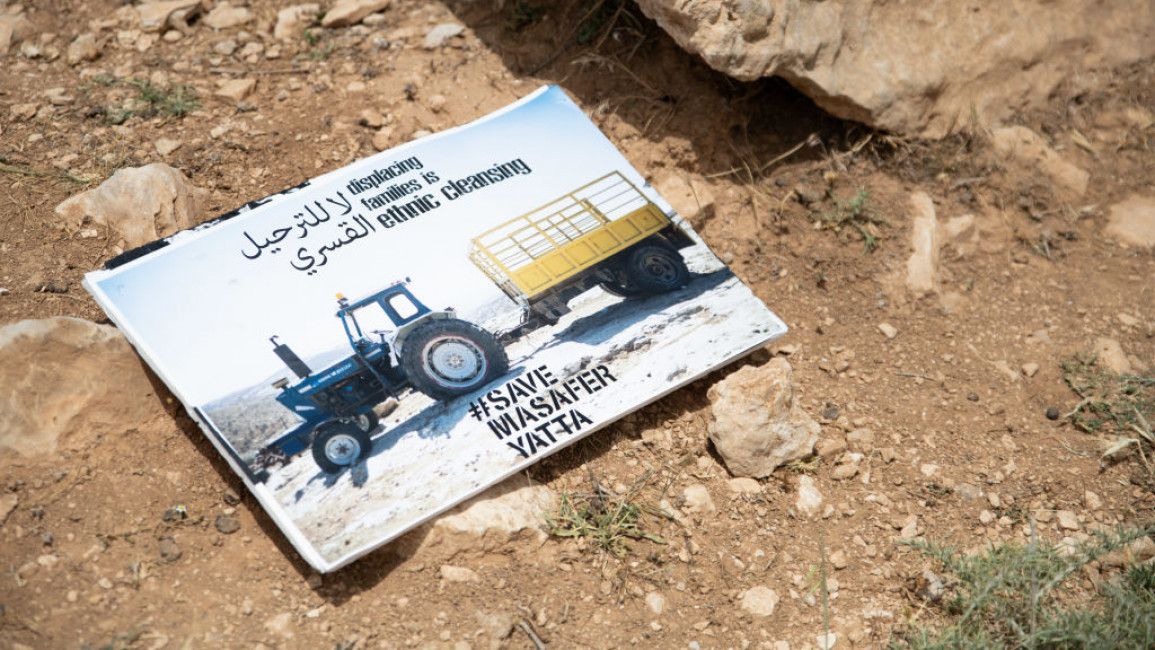Indiana Jones fan's Suffolk treasure find 'largest' Claudius reign hoard
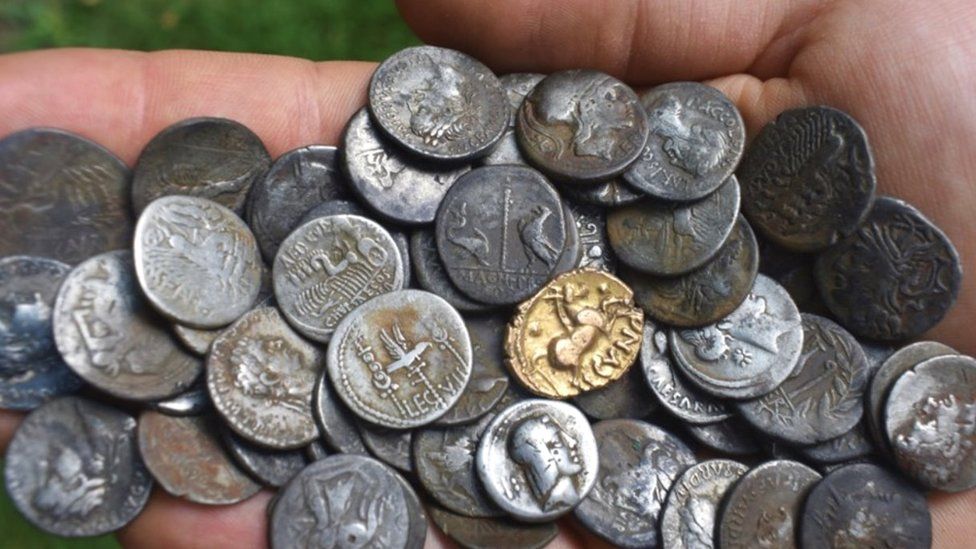
Hundreds of ancient coins unearthed by a metal detectorist could be what experts say is the largest precious metal hoard found in Britain dating from the reign of Claudius I.
Lifelong fan of fictional film archaeologist and adventurer Indiana Jones, George Ridgway, 31, found 748 Roman and Iron Age gold and silver coins near Ipswich in 2019.
He said he was "stunned" by the find.
The hoard is still being valued by the British Museum in London.
Mr Ridgway, a butcher, from Ashbocking, in Suffolk, caught the treasure-hunting bug as a toddler, and was obsessed with Harrison Ford's film character, Indiana Jones.
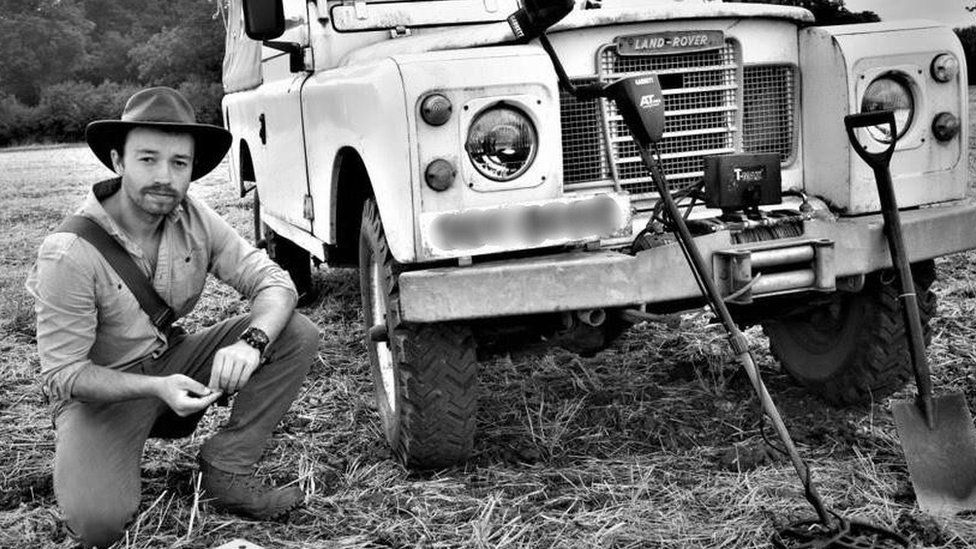
As a child he dressed as "Indy", and on many occasions, still does, sporting the fedora hat and the occasional whip.
He was "passionate" both about Indiana Jones and metal detecting - "and I still am", he said.
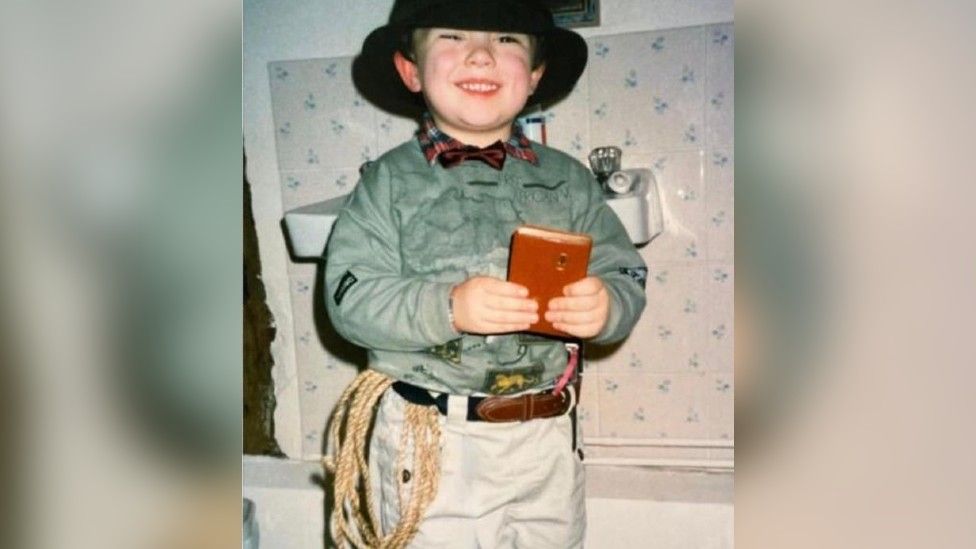

Harrison Ford played Indiana Jones in several films
In September 2019, he came across an unusual crop marking in a Suffolk field, while tracing Roman roads on Google Earth.
"I found two Roman brooches, then a Julius Caesar silver denarius dating from 46-47BC," he said.
"After about two hours, I had found 180 coins - I was stunned, really."
He went on to find parts of a broken pot and further coins, which he believes had been buried together as one stash.
"My dad slept at the site for the first two nights to protect it," Mr Ridgway said.
It took about three months, working with archaeologists, to uncover the rest - a total of 748 coins - although Mr Ridgway said he had found others, since.
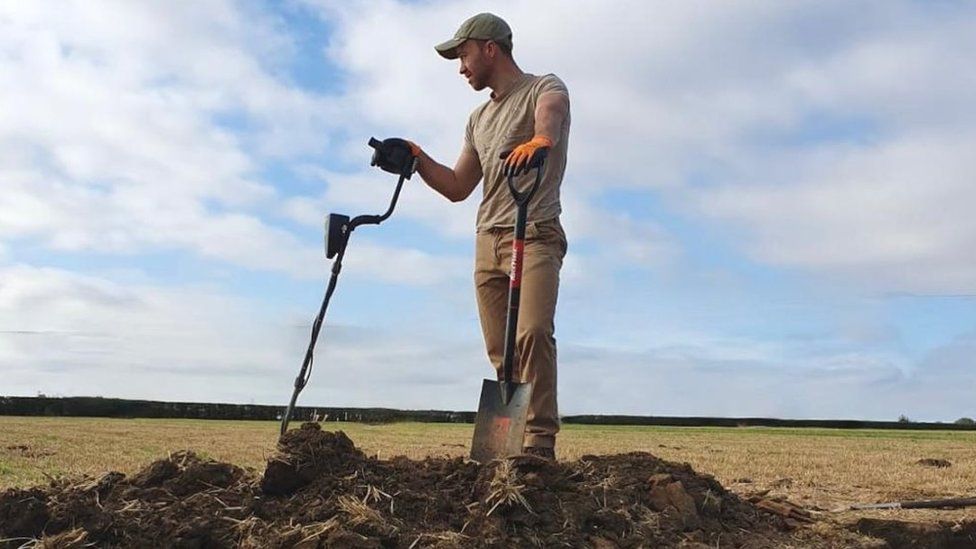
He said his childhood dream of being a real-life Indiana Jones seemed to be coming true.
"I wanted to be like him - something resonated with me from a very early age - locating mystic relics - he's such an iconic figure."

Further finds at the Suffolk site have led Mr Ridgway to believe there is evidence of a previously unknown Roman settlement, which he hopes to explore further with county archaeologists.
He said his hoard was declared treasure by the Suffolk coroner last year, and the finds are currently at the British Museum, being examined and valued.
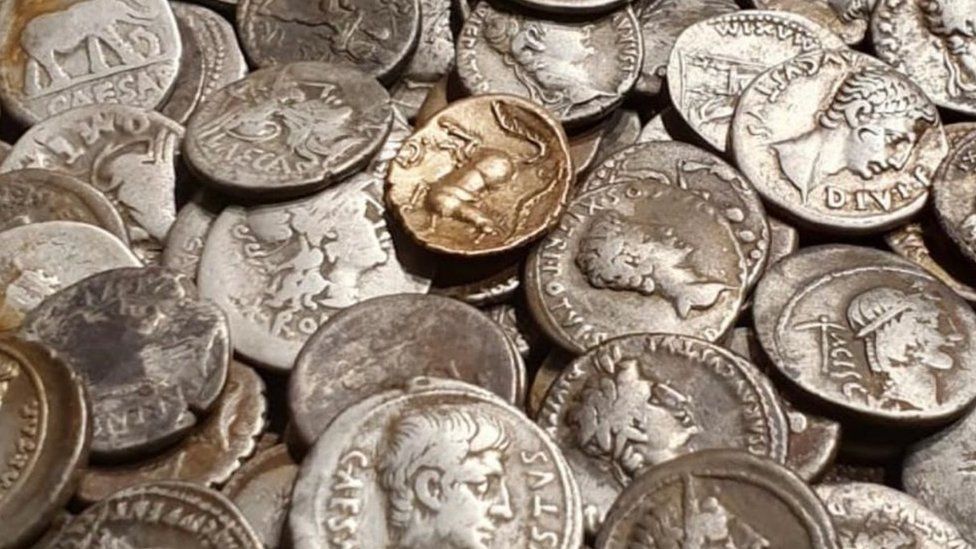
Dr Eleanor Ghey, the British Museum's curator of Iron Age and Roman coin hoards, said: "I would say that it is the currently the largest precious metal hoard found in Britain that dates from the reign of Claudius I (AD41-54).
"It is unusual because it combines Iron Age coins of Cunobelin (who ruled in the North Thames area and had a power base at Colchester) with Roman coinage.
"Most other mixed hoards found in East Anglia usually combine Roman coins with the local East Anglian Iron Age coins from Norfolk and Suffolk (which are associated with the Iceni, the tribe of Boudicca)."
Of particular note within the hoard is a gold coin of Claudius dated just prior to the Roman conquest of Britain in AD43, she said.
"Roman gold coins of this period are rarely found."

While the hoard's modern-day value is yet to be determined - and the money will be shared between Mr Ridgway and the Suffolk landowner - Dr Ghey said: "In terms of its ancient value, it would equate to over two years' pay for a Roman legionary soldier."
Mr Ridgway described her comments as "awesome and amazing", but stressed he did this for "the love of history-hunting" rather than for monetary gain.
It is hoped the hoard will go on permanent display at Ipswich Museum in the future.
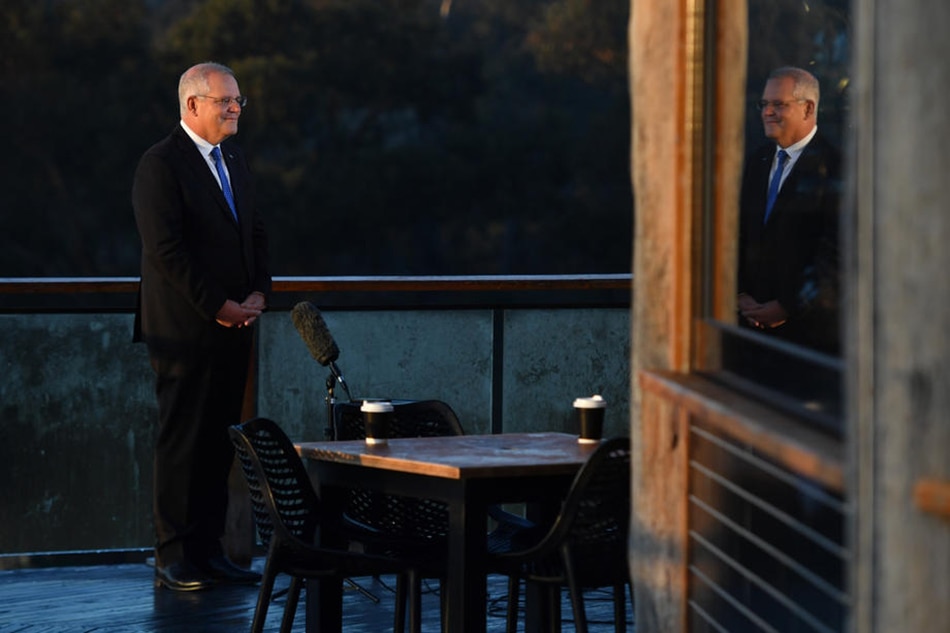
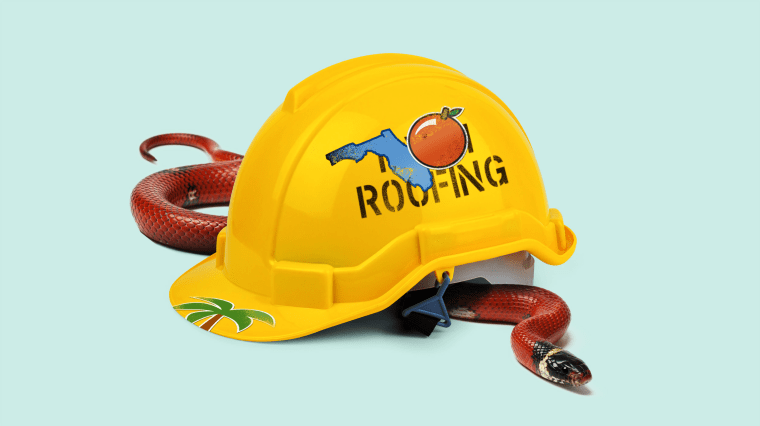


:quality(70)/cloudfront-eu-central-1.images.arcpublishing.com/thenational/XLA4DPROEHELRMPXFG474RLT44.jpg)
:quality(70)/cloudfront-eu-central-1.images.arcpublishing.com/thenational/BNTQEQSBSEYVDMXFFH3HGHKWYM.jpg)
:quality(70)/cloudfront-eu-central-1.images.arcpublishing.com/thenational/YSSLIQFT2VFGK2YLWBCVNP2XYI.jpg)
:quality(70)/cloudfront-eu-central-1.images.arcpublishing.com/thenational/QDRTJIBEYVVAB2XVGHNEAG4S54.jpg)
:quality(70)/cloudfront-eu-central-1.images.arcpublishing.com/thenational/2DBONPF3HMUXFH5CUXRYZEQEKY.jpg)
:quality(70)/cloudfront-eu-central-1.images.arcpublishing.com/thenational/XVQQZKZ2IMZ3LXVX4A3TD64KNQ.jpg)
:quality(70)/cloudfront-eu-central-1.images.arcpublishing.com/thenational/QHUZPQAJTRFACDW4VERWT7IM44.jpg)
:quality(70)/cloudfront-eu-central-1.images.arcpublishing.com/thenational/RRPCE77B3VIDGDVYBF6ACRCY5Y.jpg)
:quality(70)/cloudfront-eu-central-1.images.arcpublishing.com/thenational/77KNPMCEXOIMD3KICY5JTDXH5Y.jpg)
:quality(70)/cloudfront-eu-central-1.images.arcpublishing.com/thenational/X6HEPGQQN6WPJ6JAOL6PDDLGJM.jpg)
:quality(70)/cloudfront-eu-central-1.images.arcpublishing.com/thenational/54AGVW52EE6PFWYUBHWAY7EBKQ.jpg)
:quality(70)/cloudfront-eu-central-1.images.arcpublishing.com/thenational/YGQAPDF52NOXOISNTAR3HCCZNU.jpg)
:quality(70)/cloudfront-eu-central-1.images.arcpublishing.com/thenational/JCW45J3URC7U2K6UUHVZTUQK4M.jpg)
